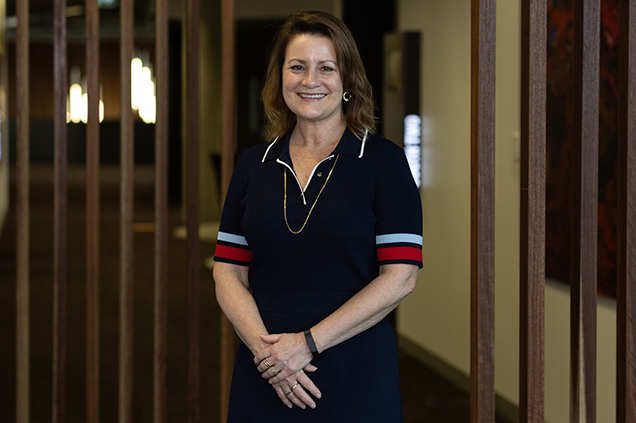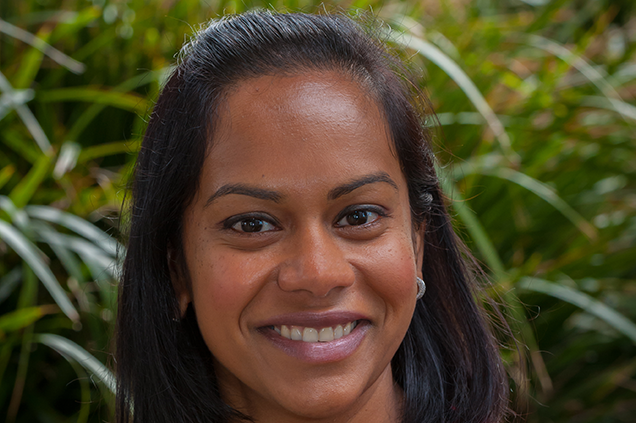Researchers from Deakin University's Faculty of Health have received funding totalling more than $4.7 million in the 2024 National Health and Medical Research Council (NHMRC) Investigator Grants.
Professor Jo Salmon, Dr Edith Holloway, Associate Professor Jaithri Ananthapavan and Dr Priscila Pereia Machado will each lead projects to investigate Australia's greatest health challenges, in areas spanning physical activity, diabetes, obesity and ultra-processed foods.
The competitive grant scheme provides Australia's highest-performing researchers, across the spectrum of health research and at all career stages, with consolidated funding for their salary, if required, and a significant research support package for five years.
Deakin's successful projects are:
Improving sustainability and equity of youth physical activity initiatives at scale - $2,981,630.00
Alfred Deakin Professor Jo Salmon, School of Exercise and Nutrition Sciences and Institute for Physical Activity and Nutrition (IPAN)

Despite physical inactivity being a leading behaviour risk factors for chronic disease in Australia, there is almost no research on youth physical activity programs at scale.
Building on Professor Salmon's and the research team's established physical activity work, this project will provide an Australian-first examination of the role of
sustainability (if a program has become a part of routine practice) and social equity in delivering physical activity initiatives.
Collaborating with schools, families and, local, state/territory and national government, the project will inform the development of innovative tools and techniques to improve and assess how physical activity initiatives are implemented.
The study's findings will have the potential to have population and global impact through informing how to implement effective physical activity interventions equitably and sustainably at scale.
Improving mental health among Australian adults with diabetes through population-level monitoring - $589,520.00
Dr Edith Holloway, School of Psychology and the Institute for Health Transformation's Australian Centre for Behavioural Research in Diabetes (ACBRD)

It's estimated 750,000 Australians with diabetes struggle with mental health, this is set to double by 2050. Despite guidelines, the mental support is still lacking in routine diabetes care.
Led by Dr Holloway, this research will establish a national mental health and diabetes monitoring system to improve access to early intervention. To do this, the project will answer questions like: What are the mental health trajectories for Australians with diabetes? Which early interventions are effective?
The project aims to uncover the mental health trajectories and ensure tailored early intervention to benefit Australian adults with diabetes is available.
Transforming resource allocation decision-making for obesity prevention - $510,914.41
Associate Professor Jaithri Ananthapavan, School of Health and Social Development and the Institute for Health Transformation's Deakin Health Economics (DHE) domain

Obesity is a notable driver of poor health in Australia, which leads to poor health, health inequities and can be costly to tackle.
Government decision-making on which policies and programs to fund to address this complex issue needs to consider the costs, benefits and equity impacts of potential strategies.
Associate Professor Ananthapavan's project will work with decision-makers to develop the evidence they need to make informed and consistent decisions to improve the health and wellbeing of all Australians.
The frameworks and models developed for this grant will be internationally significant as governments around the world grapple with resource allocation dilemmas and the outputs can inform decision-making for obesity prevention at local, state and national levels. It will also have application beyond obesity prevention as common factors impact preventive health decision-making in general.
Responding to the burden of chronic diseases attributable to ultra-processed foods in Australia - $674,400.00
Dr Priscila Pereira Machado, School of Exercise and Nutrition Sciences and IPAN

Ultra-processed foods, including soft drinks, fast foods and microwave meals pose a significant risk to public health globally. They comprise not only 42% of Australians' diet, but also have been associated with more than 30 chronic diseases.
While there is momentum for guidelines targeting ultra-processed foods (including warning labels on products), these policies are still lacking in Australia.
Drawing on Dr Machado's nutritional epidemiology and policy expertise, this research will investigate the role of ultra-processed foods in Australian's diets and develop strategies to reduce their consumption. She will also test the effects of a novel warning label on consumers' healthiness perceptions and purchasing intentions.
The research outcomes will contribute to new knowledge about ultra-processed foods, including identifying groups as a higher health risk and ways to respond their harms to reduce the burden of chronic disease in Australia and beyond.
Creative Commons Statement: The text of this article is licensed under the Creative Commons Attribution (CC BY) 4.0 International






